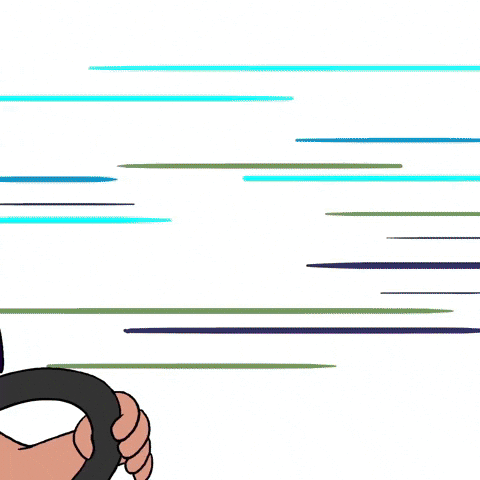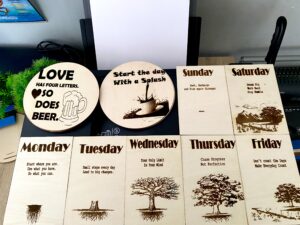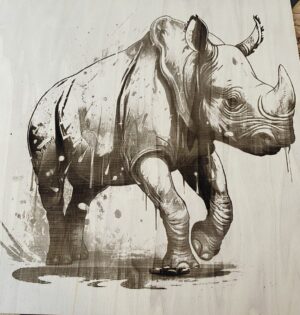Detours That Lead to Success

Every road trip has its surprises. Sometimes a wrong turn takes you off the highway, down a dusty side road, and you wonder if you’re lost. But then, just around the bend, you stumble on the best view, the best meal, or the most memorable story of your journey. These are detours that lead to success.
Business works the same way. Many of the world’s most successful products start as failures or marketed for something entirely different. What saved them wasn’t luck alone — it was the ability to pivot, adapt, and find a new story.
Let’s take a moment to talk about resilience, pivoting, adapting and consistency to survive in the business world. Read up on Famous Products That Were Rebranded as we continue along.
The Roadtrip Truth About Pivoting
On a road trip, a blocked road doesn’t mean the journey is over — it just means you need to take another route. Business is no different. These are just detours that lead to success. Play-Doh, Listerine, and Oros didn’t succeed because their first ideas were perfect. They succeeded because their creators didn’t give up when the road closed. They pivoted, adapted, and kept moving.
It’s the ability to change direction when the road ahead is blocked, without abandoning the journey altogether. In business, that’s often the difference between fading away and finding lasting success.
Persistence gets you started. Pivoting gets you there.
Play-Doh: Cleaning Walls Was a Dead End
Play-Doh’s original purpose — wallpaper cleaner — became obsolete as coal heating declined. Most companies would have given up, but the makers noticed teachers using it for playtime. Pivoting away from “cleaning” and toward “creativity,” they rebranded it as a toy. The result? An $11-billion global play brand.
Pivot lesson: When your market disappears, listen to how people are actually using your product. That may be your new lane.
Listerine: Too Many Markets, One Clear Winner
Listerine spent decades bouncing between uses — surgical antiseptic, dandruff cure, even floor cleaner. But none of these categories stuck. When marketers reframed it as a cure for bad breath, sales exploded.
Pivot lesson: Focus matters. If you’re trying to be everything to everyone, you’ll be nothing to anyone. Sometimes a single, clear problem is all you need to own a market.
Bubble Wrap: A Pop That Almost Deflated
First launched as a futuristic wallpaper, Bubble Wrap had no buyers. Then it failed again as greenhouse insulation. Instead of scrapping it, the inventors spotted a third market: packaging. That pivot not only saved the product but created a new industry.
Pivot lesson: Failure is data. Each “no” narrowed the possibilities until the right fit appeared. Pivoting is rarely the first turn — it’s often the third or fourth.
Coca-Cola: From Medicine to Lifestyle
Coca-Cola was created in the 1880s as a medicinal tonic for fatigue. The pivot to a carbonated refreshment unlocked its true potential, turning it from pharmacy stock into a lifestyle brand.
Pivot lesson: Sometimes the pivot isn’t about finding new customers — it’s about reframing your product in a way that connects emotionally.
Oros: From Health Drink to Happy Drink
Oros was invented in 1899 as a vitamin-rich children’s tonic. But South Africans loved its taste far more than its nutritional claims. The pivot? Stop selling it as “healthy” and start celebrating it as a fun, family-friendly drink.
Pivot lesson: When customers tell you what they love most, don’t fight it — amplify it.
Mrs Ball’s Chutney: From Kitchen Accident to Pantry Icon
What began as an accident with overripe fruit was nearly thrown away. Instead, it was reframed and shared — growing into South Africa’s most famous chutney.
Pivot lesson: Mistakes can be the birthplace of innovation, if you’re willing to see the opportunity.
Ricoffy: From War Ration to Comfort Ritual
Supplied to soldiers as “Ricory” during WWII, this chicory coffee substitute wasn’t glamorous. But post-war, Nestlé pivoted it into “Ricoffy,” branding it as the warm, everyday comfort drink for families.
Pivot lesson: Context matters. A product for survival can turn into a product for comfort.
The Roadtrip of Adaptation

A good road trip rarely goes exactly as planned. Roads close, weather shifts, and detours pop up. The most memorable journeys happen when you adapt — when you embrace the change and find a new path forward.
If pivoting is about changing direction, then adapting is about changing with the environment to stay relevant. Many products didn’t just pivot once; they kept adapting over decades as customer needs, technology, and culture shifted. Again, detours that lead to success often do not appear as such at first.
Play-Doh: From Walls to Playrooms
Adaptation lesson: When the environment changes, your business model must change with it. Don’t cling to the past market — lean into the new one.
Listerine: Reinventing Its Purpose
Adaptation lesson: If your product isn’t connecting, it may not be the product that’s wrong — it might be the story you’re telling. Adapt the narrative until it resonates.
Bubble Wrap: From Home Décor to Global Necessity
Adaptation lesson: Sometimes adaptation means abandoning your original vision entirely to embrace a use you never imagined.
Coca-Cola: From Tonic to Timeless Lifestyle Brand
Adaptation lesson: Survival isn’t a one-time pivot. It’s a process of constant reinvention to stay aligned with customer lifestyles.
Oros: From Nutrition to Nostalgia
Adaptation lesson: When customers show you what they love most, adapt your brand to match their emotions, not your original intent.
Ricoffy: From War Ration to Family Comfort
Adaptation lesson: Products don’t just adapt to markets — they can also adapt to emotions, becoming symbols of comfort and belonging.
The Roadtrip Takeaway
Business resilience isn’t about having a flawless map. It’s about being ready for the unexpected:
- Pivot when the road is blocked.
- Adapt when the terrain shifts.
- Keep moving forward no matter what.
Play-Doh, Oros, Mrs Ball’s, and Coca-Cola all prove the same point: success is less about getting it right the first time, and more about staying flexible long enough to find the right road.
Because in both business and road trips, the best destinations often come from the detours.





